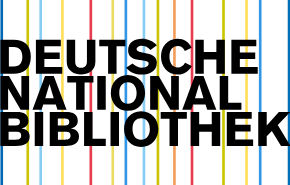AN INTEGRATED APPROACH IN RUSSIAN LANGUAGE LESSONS: INTERDISCIPLINARY CONNECTIONS
DOI:
https://doi.org/10.55640/Keywords:
language teaching methodology, teaching methods, interdisciplinary approach, cognitive development, didactics, student activation, practical applicationAbstract
This article analyzes the importance of an integrated approach to teaching the Russian language and how it can be implemented in an interdisciplinary context. An integrated approach, that is, a method of teaching the language in several subjects at the same time, allows students to learn the Russian language not only as a separate subject, but also in connection with other areas (mathematics, history, geography, etc.). The article describes in detail the advantages of such an approach, its ability to encourage students to think more broadly, its effectiveness in the practical application of the language, and how to implement interdisciplinary connections in the lesson. It also examines the methodological and didactic foundations of an integrated approach, its impact on the cognitive development of students.
Downloads
References
1.1.Akramkhodjayeva, Dilfuza. "POSSIBILITIES OF PERSONALIZING LANGUAGE LEARNING WITH THE HELP OF CHATGPT AND ARTIFICIAL INTELLIGENCE."International Journal of Artificial Intelligence 1.3 (2025): 129-131.
2.2.Chernobrovkina Irina. (2024). DEVELOPING LISTENING SKILLS THROUGH PODCASTS AND AUDIOBOOKS IN TEACHING RUSSIAN AS A FOREIGN LANGUAGE.Neo Scientific Peer Reviewed Journal, 22, 11–18. Retrieved from https://neojournals.com/index.php/nspj/article/view/409
3.3. Markhabo Abdullayeva, Gulrukh Khidirova, LINGUISTIC AND CULTURAL FEATURES OF ANTHROPONYMS. (2025). Journal of Multidisciplinary Sciences and Innovations, 4(3), 700-703. https://doi.org/10.55640/
4.4.Aripova G. T. ADULTS TEACHING ENGLISH IN THE SPHERE OF ART AND CULTURE //Language and culture. – 2018. – P. 72-81.
5.5. Yakubova Feruzakhon Askarovna, & Chernobrovkina Irina Viktorovna. (2024). EXPLORING THE EFFECTIVENESS OF INTERACTIVE TECHNOLOGIES IN RUSSIAN LANGUAGE INSTRUCTION VIA ROLE-PLAYING GAMES. American Journal of Research in Humanities and Social Sciences, 22, 37–42. Retrieved from https://americanjournal.org/index.php/ajrhss/article/view/1928
6.6. Irina Chernobrovkina. METHODOLOGY OF TEACHING TERMINOLOGICAL VOCABULARY OF THE RUSSIAN LANGUAGE TO STUDENTS OF NON-LINGUISTIC SPECIALTIES. 7/2024 Til_va_adabiyot.uz Magazine
7.7. Alimukhamedova S., Chernobrovkina I. THE IMPORTANCE OF STUDYING FOREIGN LANGUAGES IN THE INTERCULTURAL SPACE // Bulletin of Science and Creativity. – 2023. – No. 8 (90). – P. 5-7.
8.8.Hamidov, Xayrulla, and Marxabo Abdullayeva. "Alternative Versions and Functional Characteristics of Phraseologists in Uzbek."EUROPEAN JOURNAL OF INNOVATION IN NONFORMAL EDUCATION 4.3 (2024): 51-54.
9.9. Abdullayeva, M. and Maxmudova, M., 2022. Importance of legal education characteristics.Science and Innovation, 1(7), pp.1311-1314.
Downloads
Published
Issue
Section
License

This work is licensed under a Creative Commons Attribution 4.0 International License.
Authors retain the copyright of their manuscripts, and all Open Access articles are disseminated under the terms of the Creative Commons Attribution License 4.0 (CC-BY), which licenses unrestricted use, distribution, and reproduction in any medium, provided that the original work is appropriately cited. The use of general descriptive names, trade names, trademarks, and so forth in this publication, even if not specifically identified, does not imply that these names are not protected by the relevant laws and regulations.






 Germany
Germany United States of America
United States of America Italy
Italy United Kingdom
United Kingdom France
France Canada
Canada Uzbekistan
Uzbekistan Japan
Japan Republic of Korea
Republic of Korea Australia
Australia Spain
Spain Switzerland
Switzerland Sweden
Sweden Netherlands
Netherlands China
China India
India
